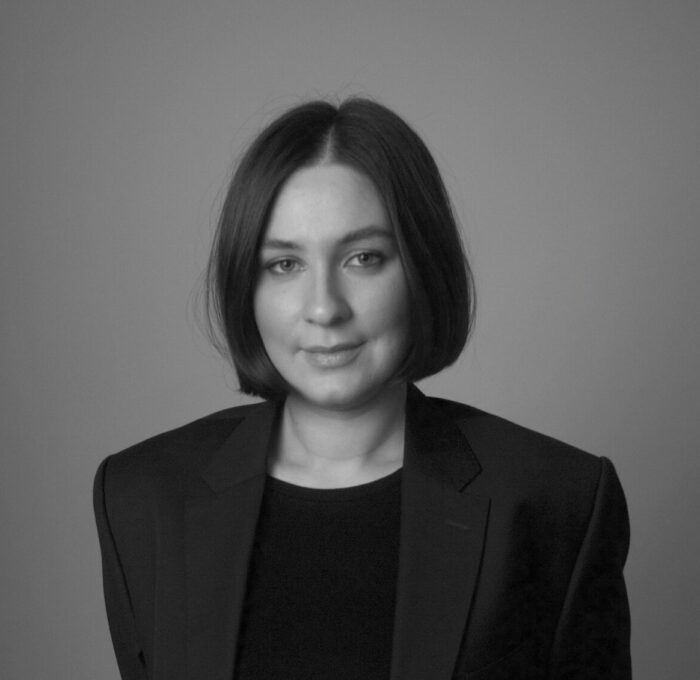Lana Uzarashvili, M.A.

Universitätsstr. 150
44801 Bochum
Room: GB 6/142
Phone: +49 (0) 234/32-xxxxx
E-Mail: Lana.Uzarashvili@ruhr-uni-bochum.de
.
Title of PhD Project
Documenting the Atmosphere: Thermal Landscapes in the Tropics and Artificial Climates (AT)
Description
The Anthropocene thesis, popularized by atmospheric chemist and meteorologist Paul Crutzen, posits a new geological epoch primarily defined by the role of anthropogenic alterations of the Earth, implies large-scale geoengineering strategies to manage the detrimental effects of such human activities and optimize planetary climate conditions. This logic leads to representing the Earth as an artificially controlled planetary climate rendered for comfortable existence and functioning on it. In 1922, Russian geophysicist Boris Weinberg published a work of fiction on climate engineering, depicting the future of humanity that managed to rearrange the planetary climate, disrupted by CO₂ emissions during the era of coal energy, by reducing oceans and, therefore, atmospheric precipitation. Describing rain, hail, and winds as “defects” of the planet as our dwelling, an “apartment” of humanity, in his later work, he not only described a fantasy of rigorously controlled climate but also communicated actual scientific, geopolitical, and administrative strategies that the Russian Empire and the Soviet Union implemented in territorial management (Weinberg, 1934). Description, representation, classification, and documentation of atmospheric phenomena had played a key role in such endeavors, where the very object of inquiry — ever mutable, intangible, and almost abstract atmosphere — was shaped and narrated through the procedures of cataloging, production of atlases, diagrams, maps, and images that participated in spatial projects.
The research project departs from the notion that climate engineering underpins imperial expansion, examining the technologies of atmospheric control in constructing tropical landscapes within the Soviet Union. These landscapes were depicted by colonial botanists and artists as “natural greenhouses” while pointing to their high potential for acclimatization and cultivation of tropical crops, owing to their unique soil-atmosphere combinations. These territories, subjugated in the latter half of the 19th century, were perceived as paradisiacal, salubrious, and fertile, yet also malignant, due to their climatic conditions and “contagious” air, which enabled interventions to render them livable for settlers and agriculturally valuable. Tropicality is produced through the abundance of images that shape expectations and assumptions about the landscape’s climatic conditions through “the use of a sense of temperature to justify colonial expansion and inhabitation” (Starosielski, 2021). As Nancy Leys Stephan put it, “tropics became visually tropicalized,” and these images rendered botanical species, such as palm trees, less a natural background and more as “imaginative submersion in hot places” (Leys Stepan, 2001).
The project aims to examine the techniques of documenting the atmosphere through its management, perceiving it not as an abstract backdrop but as a set of operations grasped through image-production. Accordingly, it seeks to investigate the operational images employed in projects of creating tropical landscapes through climate control (Parikka, 2023). Concurrently, the project investigates institutional and national archives, as well as scientific works, to explore the understanding and representation of atmospheric control as communicated by these institutions and actors, which also included rather utopian projects that conveyed the state’s agenda on climate control through a vision of how socialist life was planned to be organized. This approach situates the project within the theoretical framework of climatic media that broadens the definition of media to include “the materiality of elements that condition our milieu” and encompasses “the architectural, scientific, and artistic techniques and technologies of producing climate-controlled bubbles and modifying weather” and condition (non)human life (Furuhata, 2022).
Scientific Career
- Since 06/2024: Scientific Researcher at DFG-Graduiertenkolleg „Das Dokumentarische. Exzess und Entzug“, Ruhr-University Bochum
- Since 10/2022: Promotion, Institut für Medienwissenschaft, Ruhr-University Bochum
- 09/2017-06/2019: Master of Philosophy, Lomonossow-University Moskau
- 09/2013 bis 06/2017: Bachelor of Philosophy, Lomonossow-University Moskau
